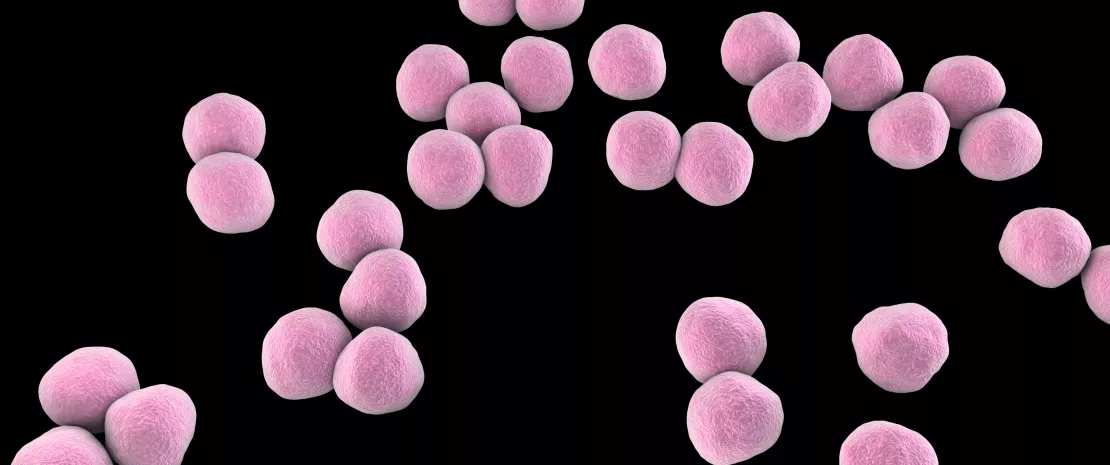Stress urinary incontinence: vaginal microbiota frequently unbalanced
Urinary incontinence remains a taboo subject but is nonetheless a common reason for medical consultation. In the future, will examinations include an analysis of the vaginal microbiota? This may be the case, if the results of this study are confirmed.
Lay public section
Find here your dedicated section
Sources
This article is based on scientific information

About this article
Medication, lifestyle, and hormonal changes during pregnancy are just some of the factors that can disrupt the temperature, humidity, pH, and protective barrier of the vaginal environment. These changes can facilitate the development of pathogenic bacteria and threaten the healthy dominance of Lactobacillus in the vaginal microbiota. This can lead to genital and urological diseases, since the anatomical proximity of the urethra and vagina facilitates close relations between their respective microbiomes.
50% Nearly half of women have never heard of vaginal microbiota.
30% vs. 15% Many elderly people are affected by urinary incontinence, especially women: 30% of elderly women and 15% of elderly men suffer from urinary incontinence.
18% to 34% Stress urinary incontinence is widespread among post-partum and older women, with a prevalence of 18% to 34% depending on the study.
Incontinence often accompanied by dysbiosis
Is stress urinary incontinence (SUI) part of the growing list of such pathologies? Yes, according to the results of a study 1 of 32 post-partum patients in a hospital in Hunan province, China, 13 of whom suffered from SUI and 19 of whom did not. While 42.1% of the non-SUI group presented a vaginal dysbiosis, an imbalance in the vagina’s microbial flora, this figure rose to 84.6% for patients with SUI. In other words, vaginal dysbiosis was twice as common – indeed, almost systematic – in the mothers suffering from SUI. Their flora showed an increased relative abundance of Gardnerella, Streptococcus, Prevotella, Dialister, and Veillonella.
Types of urinary incontinence
There are three major types of urinary incontinence: 2,3
- stress urinary incontinence;
- urge urinary incontinence, where leakage is preceded by a very pressing urge to urinate;
- mixed incontinence, which combines both symptoms.
Two rarer types of urinary incontinence also exist: 2,3
- overflow incontinence (small loss of urine due to an overfull bladder);
- functional incontinence, which results from a mental or physical incapacity unrelated to the control of urination (Alzheimer’s disease, where the need to urinate is not recognized and/or the location of the toilet forgotten).
An over-connected microbiota?
To unravel the relationships between the various vaginal microorganisms potentially involved in SUI, the researchers carried out what is known as a network co-occurrence analysis of the patients’ microbiota. In other words, they mapped the potential links between various bacteria. They found that the vaginal microbiota of the SUI patients was much more interconnected and complex: when the links between the bacteria were mapped, the network of the non-SUI group displayed 96 nodes and 133 edges, compared with 200 nodes and 409 edges for that of the SUI patients. In general, microbial communities with a high degree of interconnectedness are considered less stable and therefore more susceptible to imbalance.
According to the authors, these results suggest a link between an unstable vaginal microbiota and SUI. However, there is no evidence that this relationship is causal, with further studies required to confirm these results.





